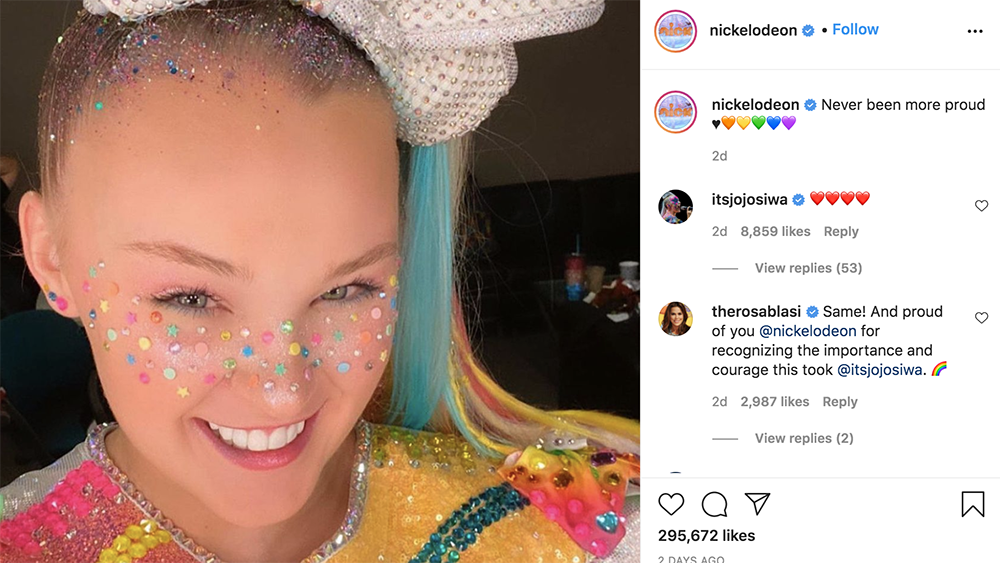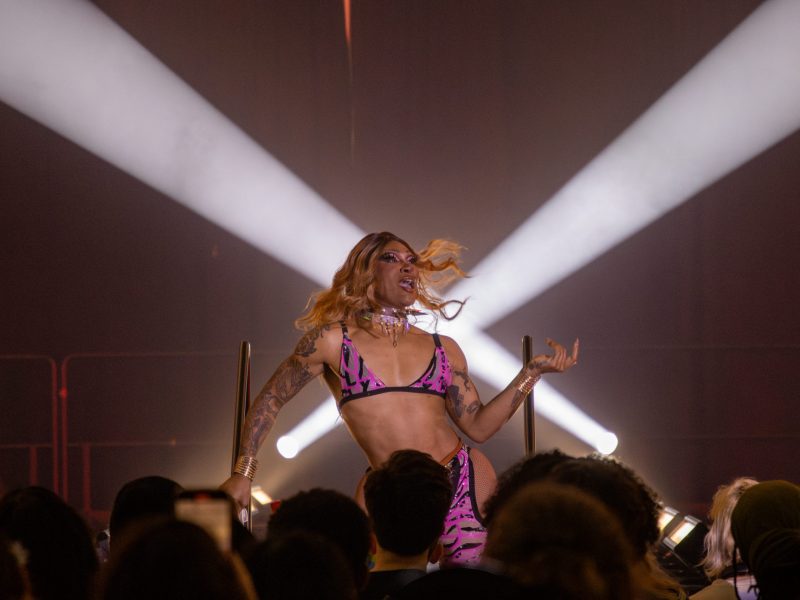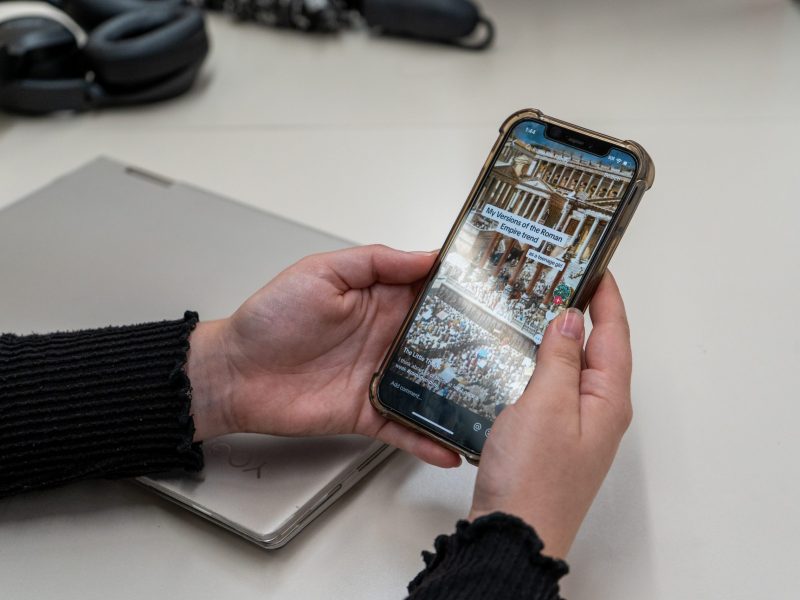On Jan. 21, teen star and influencer JoJo Siwa posted a TikTok of herself lip-syncing the bridge of Lady Gaga’s “Born This Way.” The 17-year-old Dance Moms alumna mouthed, “No matter gay, straight, or bi/ Lesbian, transgender life/ I’m on the right track, baby/ I was born to survive.” Rumors quickly began circulating on what the captionless video was supposed to mean, with some commenters jumping to congratulate her for coming out and others expressing confusion with the lack of clarity.
@itsjojosiwa♬ Born This Way Lady Gaga – johanna
Siwa cleared up the confusion the day after by tweeting a picture of her wearing a gift her cousin had sent her: a T-shirt that read “Best. Gay. Cousin. Ever.”
Siwa has been met with an outpouring of support, with celebrities such as YouTuber and LBGTQ advocate Nikkie Tutorials, reality icon Paris Hilton and even former dance instructor Abby Lee Miller expressing their praise on social media.
While Siwa’s coming out may not seem like a big deal, many people on social media were quick to emphasize the importance of her announcement.
Ok all jokes asides jojo siwa coming out is super fucking brave considering she’s primarily in children’s entertainment and this has potential to piss off a lot of parents, networks she works with, etc but is also so fucking cool for that reason?! What a badass
— :/ (@bigfatmeg) January 22, 2021
Representation can come in many forms — music, media, advertisements. But when it comes to childhood icons and characters, the idea of sexuality is often swept under the rug, with most queer childhood figures created by queer people themselves. Figures such as Pee Wee Herman, Mr. Rogers and Bert and Ernie have often been hailed as characters with queer subtext. Any form of confirmation — or denial — of this subtext has only come in recent years, as depicting queerness became less taboo.
Queerness is something that children’s entertainment has struggled to address. It was, and still is, an issue that is often met with backlash. Disney has had multiple movies banned or rewritten to remove LGBTQ figures from the film. 2017’s Beauty and the Beast and 2020’s Onward were both banned in some countries for having brief scenes that depicted LeFou kissing another man and a female cop referring to her “girlfriend,” respectively.
Siwa’s coming out represents a newer notion of queerness in the context of children’s entertainment; it does not need to be glossed over out of fear of alienation or rejection. Siwa has gone on record saying “JoJo Siwa” is a billion-dollar brand, available in countless retailers across the country. If you can think of a product, JoJo Siwa has probably tacked her name on it, from clothing to ice cream. And now, an openly queer woman is in the households of countless Americans. Siwa is a positive role model for many kids. If parents attempt to take away their 5-year-old’s JoJo Siwa bow, they will be forced to explain the absurdity behind the concept of queerness being bad. Children love JoJo, her image and her brand, and as a result, they will learn to embrace the concept of acceptance at an even earlier age.
Nickelodeon posted a photo of JoJo on Instagram with the caption, “Never been more proud.” If a major corporation is willing to back her, we can expect more progress to follow.



